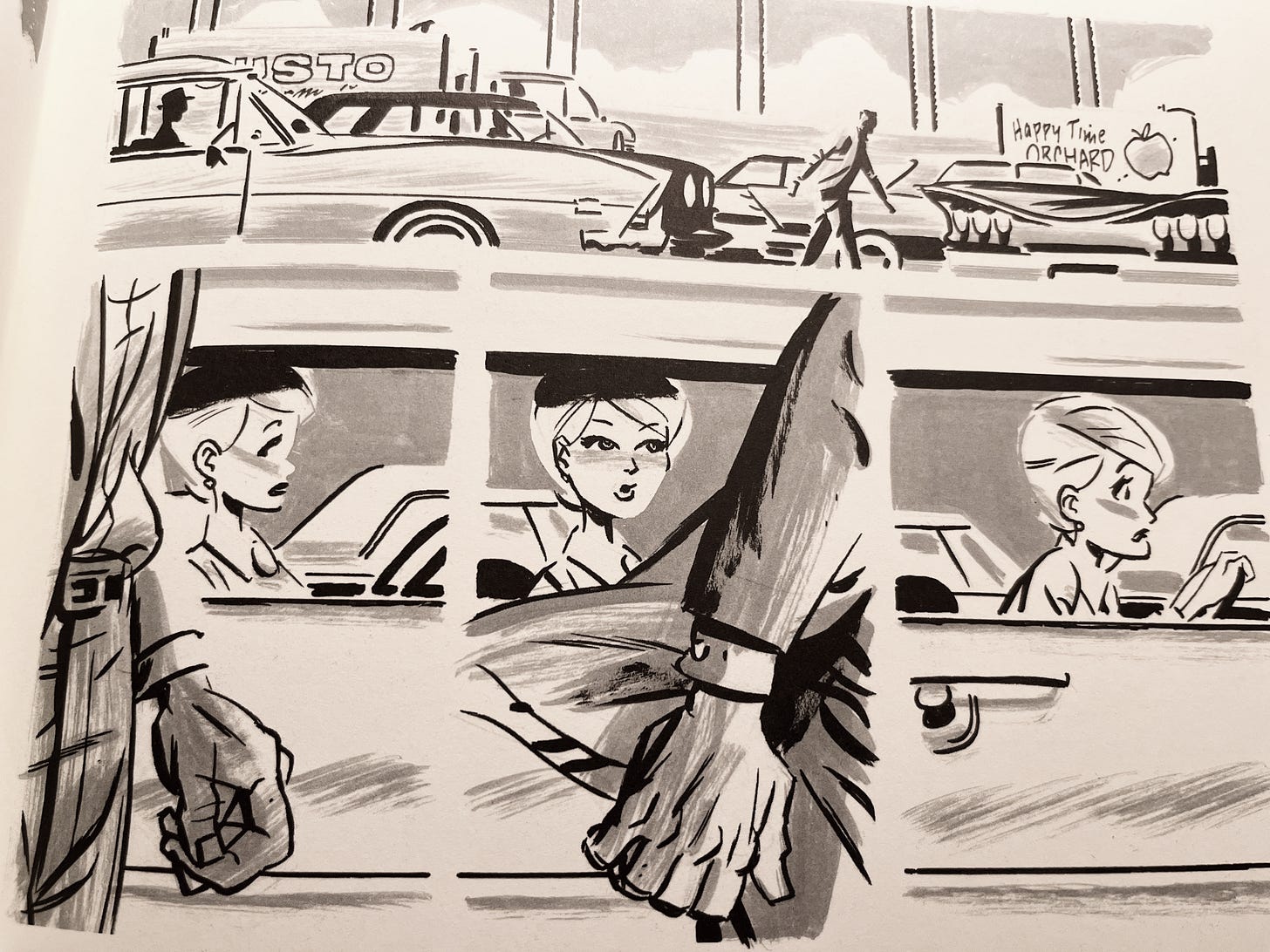Getting Back Up
Wherein the author deliberately misses the point of a book so as to focus on something else that is on his mind, along with some thoughts about David Fincher's The Killer
I spent Sunday afternoon reading Joshua Hull’s Underexposed: The 50 Greatest Films Never Made while watching the Seattle Seahawks play the Los Angeles Rams. The Seahawks had an incredible game against the Washington Commanders at home last weekend and came into the game this week with a record of 6-3. I thought the game would be idle background noise as I read Hull’s gossipy inside-Hollywood rundown of a bunch of films that were never realized.
Then, near the end of the third quarter, Gino Smith takes a hard hit and goes out of the game. Suddenly, Stafford and the Rams make a comback. Less than two minutes in the game, the Seahawks find themselves down by a point. Gino Smith comes back in the game and . . .
This may sound like last week’s game, which came down to the final seconds as well. Seattle managed to pull it out with a final field goal. This week however, Jason Myers’s final kick lurches to the right and, just like that, the game is over. Seahawks go to 6-4 for the season. They don’t have a lot of time to mope around, however, as they’re back on the field Thanksgiving Day against the San Francisco 49ers, who are expected to be a tough match-up.
Anyway, Hull’s book is a marvelous game of “What-if?” and there are some truly bonkers tales of movies that never happened. Some of them were too ahead of their times. Some of them died due to a shift in management—nervous executives who only cared about box office returns than building creative opportunities (but this isn’t new). Some of these films died because, well, they were really bonkers. But what I liked about Hull’s approach is that he always made an effort to remark about what the players actually went on and did. You didn’t stop working just because one creative idea didn’t come to pass.
Much like your local sports team doesn’t give up after one missed field goal.
You take a moment, brush off the dirt while you think about what you might do differently, and get on with shit.
I bring this all up because, in the creative accounting of last year, I put out one book (The Cold Empty), one chapbook (Scrounging & Snouting), and I had one story appear in an anthology (“The Fool’s Gambit” in Demagogue Press’s Winding Paths, due out any day!). It wasn’t the best year, and while I want to fuss and grumble, I knock off the dirt, think about what I might do differently, and get on with shit.
I am going to start with going to the gym. I’m on a 80+ day streak of hitting 10,000 steps a day, and as I’m writing this, it’s 5pm and I’m only at 1,762 steps. So, when you read this later in the week, assume my streak continues.
And whatever it is that you are doing to be creative, stick with it. Some days, it may seem like that last-minute field goal shot has veered to the right, but whatever. This game is a long game. Keep showing up.
I watched David Fincher’s The Killer recently. Fincher, as always, is in complete control of every color and every frame. I mean, look at that goddamn color theory on display for a throwaway shot at the super market.

It’s a cold film. Andrew Kevin Walker does the heavy lifting of translating Alexis Nolent (writing as Matz) and Luc Jacamon’s graphic novel. I haven’t read jt, but based on the heavy use of a voiceover, I’m guessing it’s moody and sparse and most of it is iconic panels with a touch of text now and again. Fincher does his best, but man, this is a tricky thing to pull off.
Trent Reznor and Atticus Ross do the soundtrack—their, what? fifth or sixth for Fincher—and it’s sparse and moody and sonically unsettling (which is to say, perfect—as always).
And Tilda Swinton is fantastic. As always. She has, frankly, more dialogue in her one scene than Michael Fassbender does in the whole film—voiceovers notwithstanding. It’s very Richard Stark, in that sense.
Also, what’s up with the last alias Fassbender’s assassin uses? It’s not a fictional character. Anyone?
Also also, given this film and No Time To Die, clearly all spies have fucking amazing getaway houses in the Caribbean.
I’m reminded of Darwin Cooke’s commentary about doing the graphic novel version of Richard Stark’s first Parker book. Cooke talks about how difficult it was to draw the opening of The Hunter. The first chapter is mostly dialogue free, but it’s an incredible sequence that tells us everything we need to know about Parker. How do you translate something like that to a series of illustrated panels?
Office women in passing cars looked at him and felt vibrations above their nylons. He was big and shaggy, with flat square shoulders and arms too long in sleeves too short. He wore a gray suit, limp with age and no pressing. His shoes and socks were both black and honey. The shoes were holes on the bottom, the socks were holes at heel and toe.
His hands, swinging curve-fingered at his side, looked like they were molded of brown cray by a sculptor who thought big and liked veins. His hair was brown and dry and dead, blowing around his head like a poor toupee about to fly loose. His face was a chipped chunk of concrete, with eyes of flawed onyx. His mouth was a quick stroke, bloodless. His suit coat fluttered behind him, and his arms swung easily as he walked.
The office women looked at him and shivered. They knew he was a bastard, they knew his hands were born to slap with, they knew his face would never break into a smile when he looked at a woman. They knew what he was, they thanked God for their husbands, and still they shivered. Because they knew how he would fall on a woman in the night. Like a tree.
If you feel like treating yourself, I think you can still find copies of both volumes of Cooke’s Parker: The Martini Edition. Spendy and oversized, but so worth your time. I’m not sure if Matz and Jacamon’s The Killer is still available in physical form, which is ridiculous, given the film just came out. Stark’s Parker series (starting with The Hunter) should be out in a uniform edition from the University of Chicago Press.
Parker, by the way, in that opening, was coming back after having been betrayed, shot, and left for dead. He got up, brushed off the dirt, and got on with shit.






